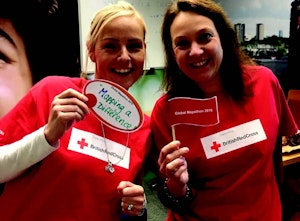Best CSR strategy
Aviva Global Mapathon
Aviva Group and the British Red Cross
Agency: scarlettabbott
In 2015, an internal employee survey revealed that 78 per cent of staff perceived insurance group Aviva as a good corporate citizen but one in five respondents were unsure. The launch of a three-year partnership with the British Red Cross in 2016 provided an opportunity to engage with this 20 per cent slug and drive pride across Aviva through its corporate responsibility activities.
Aviva wanted to create an event for colleagues that offered them opportunities for volunteering, highlighted the partnership with the British Red Cross, supported the insurance group’s stated purpose to defy uncertainty and harnessed the passion of people across its international footprint in a digital way.
The solution was to create a Global Mapathon, which would assist the British Red Cross and other humanitarian organisations in their work in developing countries. Despite being an age of satellite photography, vast swathes of the world remain unmapped and uncharted. Missing Maps is an initiative that allows volunteers to trace the outline of buildings, roads, parks and rivers in areas of the developing world using online portal satellite images which are overlaid on to Open Street Map software.
The Mapathon would provide valuable information that would help humanitarian organisations to reach people in remote areas of the developing world. As the concept was a new one, Aviva trialled a pilot Mapathon during Red Cross Week, ahead of a major 24 hour global event on 13 October, the United Nation’s International Day for Disaster Reduction, stretching from Singapore to Canada. Lessons from that pilot shaped the strategy for the formal launch.

To encourage support across all levels of the organisation, the Global Mapathon had the backing of the executive committee and was spearheaded by general counsel Kirstine Cooper. (Competitions were also launched to reward the committee member that best galvanised their business units and proved to be the best mapper.)
The event was promoted internally with save the date messages, while specially designed ‘fun packs’ of materials, including certificates, Aviva World banners, posters and selfie signs, were distributed to encourage ‘mapping parties’. How to mapathon guides were also created, along with an experiential pod where people could map surrounded by Red Cross facts and videos.
There was even a chance to practice mapping skills when staff were asked to help map buildings and roads in Haiti following Hurricane Matthew. Internally, Aviva’s corporate responsibility team tweeted regularly about the Global Mapathon, creating an inspirational video and offering a prize of a trip to the International Red Cross headquarters in Geneva to encourage people to get involved. They also shared first person stories to build excitement.
On the day, an Aviva intranet British Red Cross homepage takeover took people to a global social online platform, Heartbeat of Aviva, where they could share comments, chat and load pictures of their Mapathon parties. Photos were added to the homepage banner every time a country joined the Mapathon over the 24 hours, visualising the digital baton being passed across the world. The Aviva Global Mapathon was the most international event of its kind held by the British Red Cross.
More than 1,000 people across 13 markets, including 12 Aviva market chief executives and group chief executive Mark Wilson, mapped 126,000 buildings and 18,000 kilometres of road, which is longer than the distance between London and Sydney. They helped create maps of remote areas in Malawi, where local teams are trying to vaccinate children against rubella. More than 3,300 hours were volunteered for the project: in the UK, volunteer hours rose 40 per cent over the month. And everyone was keen to participate again. More than 7,200 people visited the Heartbeat sites, while 175 photos were posted – five times the number of a normal month. And the 2016 employee survey revealed that 84 per cent now saw Aviva as a good corporate citizen. ‘This was a creative, engaging and well thought through strategy,’ said the judges. ‘A nice concept and great outputs.’



